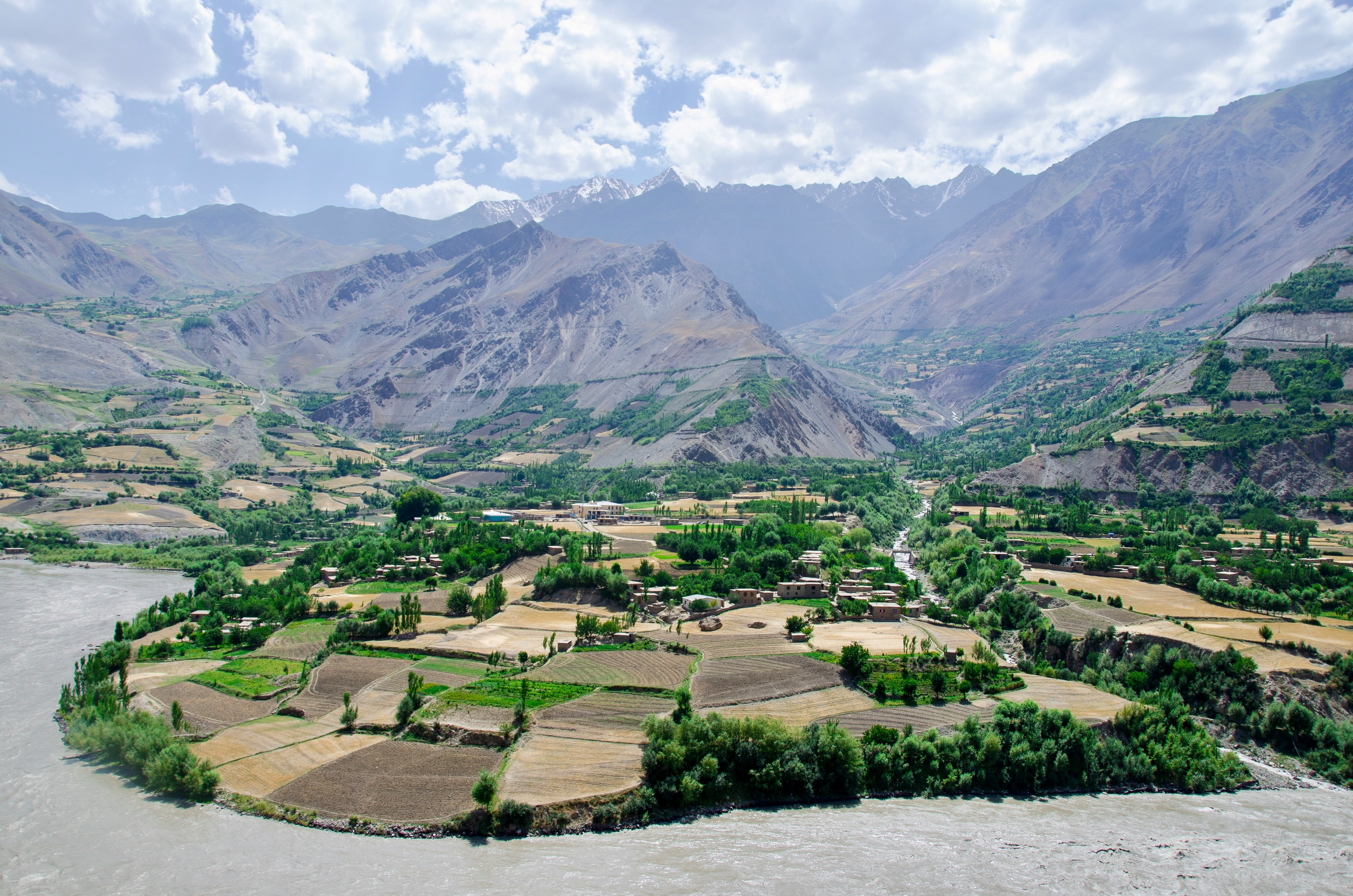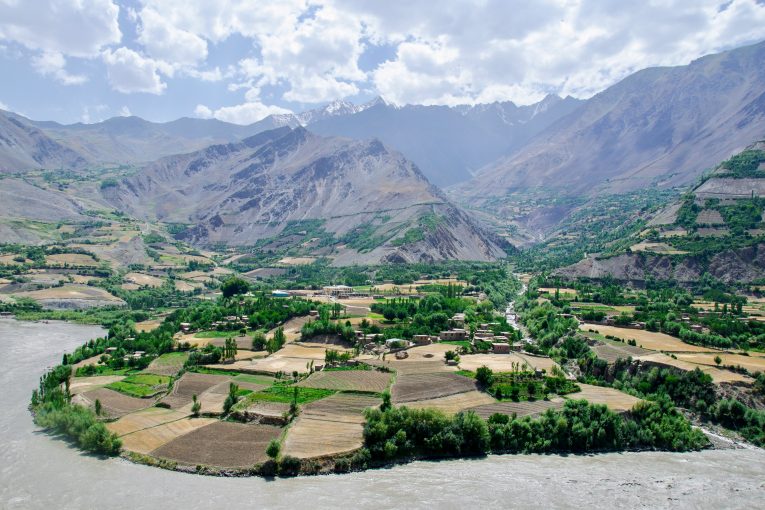
By Praniti Gulyani
As a soon-to-graduate college student, I find myself deeply engaged with contemplations about my career. Even though I began the trajectory of my future with aspirations of becoming a full-time fiction writer, a not-so-pleasant acquaintance with the reality of the payscale pushed what was meant to be a complete occupation into a side hobby. However, I’ve always wanted to make money by way of my writing and ability to express myself in words. Thus, journalism seemed to be the second-best option.
Looking upon days of reporting and fact-checking, and nights of fiction and reporting as the plausible structure for my days to come, I sometimes think about the location I’d like to cover. Encouraged by an assignment given in an International Reporting Class that I am taking this summer, I am certain that the country that stems at the intersection of my diverse interests would be Afghanistan.
Ever since I was a girl of six, I’ve always understood Afghanistan to be a suppressed  diamond. To put this thought into pictures, Afghanistan— to me— has been a precious gem covered with the dark cloths of warfare, violence, civil wars and the like. Described as the roundabout of the ancient world, the country has been a universal home, both for people and military campaigns. As affirmed by the nature of these inhabiting forces, the byproduct of this paradoxical association was inevitably destructive. Tossed from the clutches of one war to the other, Afghanistan has persisted as a shriveled-up country, struggling for a breath of gunpowder-free air.
diamond. To put this thought into pictures, Afghanistan— to me— has been a precious gem covered with the dark cloths of warfare, violence, civil wars and the like. Described as the roundabout of the ancient world, the country has been a universal home, both for people and military campaigns. As affirmed by the nature of these inhabiting forces, the byproduct of this paradoxical association was inevitably destructive. Tossed from the clutches of one war to the other, Afghanistan has persisted as a shriveled-up country, struggling for a breath of gunpowder-free air.
Irrespective of the war-engulfed landscape, I have always looked upon Afghanistan as a strong source of societal and cultural inspiration. This view majorly stems from the rapidly-transitioning role of women, from voiceless shadows to employed individuals. In addition to being a location of literary progression, Afghanistan has also witnessed the historical birth of Pashto literature in the 17th century. Thus, it is not only a place of slow and steady development, but also a witness to historic literary innovation.
Straightforward as these facts may seem, I feel as though they often get lost under what can be looked upon as the smoldering camouflage of war. This adds a layer of stereotype to the already-established identity of the country, making it come forth as a synonym for death and destruction. As opposed to experiencing the individual personalities of Afghanistan with stories of their own, we begin to view their otherwise diverse voices as a collective wail.
Even though this may come forth as an empathetic gesture, it can prove to be immensely detrimental. The constant assumption of a country with destruction might lead to an inadvertent normalization of the same, simultaneously reducing the individual gravity of each war-related and socially unjust event.
This is where—and why—the need to cover Afghanistan comes in.
To begin with, the trajectory of development embraced by Afghan women can be best understood as a non-conventional graph. In addition to the conventional ups and downs, this one graph also witnessed multiple spirals. After the re-invasion of Afghanistan by the Taliban in August 2021, women were reduced to their former identity of voiceless shadows. Recently, an Afghan Sports Official released a statement describing how the Taliban did not recognize women on the Olympic team, shortly after they slashed the salaries of women working in the public sector.
Persistent injustice yields harsh byproducts, and 1,000 days after the invasion of Afghanistan by the Taliban—over 40,000 Afghan women have flocked to Iran. In an attempt to rebuild their partially-woven academic dreams, they are continuing their education in various fields such as Medicine and Journalism at the Central University in Tehran. Reminiscing about their days of joy in their homeland in an article by The Guardian, these young women seem to have come to terms with the fact that they have to rebuild their lives elsewhere.
However, this realization of how greener pastures lie in other lands seems to be an unfortunate pattern.
The Afghan Women’s Cricket Team wrote to the ICC requesting for help in setting up a refugee team in Australia. Struggling to acquire national recognition, and fearing for their lives amidst the Taliban-run government, they described in their letter, “a profound sadness as they were not able to represent their country like the men.” An article by ESPN Cricinfo describes how these women players had requested to be administered by the East Asian Cricket Office in Australia as a refugee team who wanted to represent the women of Afghanistan but were unable to do so.
If given the opportunity to cover Afghanistan, I would analyze this prevalent desire to leave and start life elsewhere. In addition to looking at trends in student migration, the angle of my story would involve a psychological analysis of this ‘sense of assurance’ that Afghan women derive from another land. To spell out my curiosity, I cannot help but wonder—foreign lands are often looked upon as synonyms for reluctance and a protruding fear of the unknown, so how do these young girls manage to build up the trust, faith and confidence it takes to migrate? My source-mapping to execute this would include interactions with Afghan women and students who are presently enrolled in universities abroad.
Even though I am a little reluctant about the pursuit of this idea for my first potential story as far as journalistic appropriation is concerned, I want to take a slight detour and write a factual article about an abstract topic. I haven’t seen a lot of journalistic stories about trust and faith, and I think exploring this reservoir of confidence that dwells in the minds of refugees and victims of war-based displacement would be an interesting change.
Thoughts of home in the minds of those who have never witnessed stability is an intriguing paradox—and through my first potential article, I aspire to not only explore what leads to it, but also write a story about it in a manner that is informative and inspiring for the common man.
As a potential pitch for my second story, I want to analyze the countries/locations of migration chosen by the students, and other organizations in Afghanistan—such as the Women’s Cricket Team. I’m also curious to identify if there is a pattern in the choice of countries, and amidst other relevant criteria—I’m interested in looking at whether they have stronger women’s rights, firmer government laws, or an increased provision of basic resources.
I know that there is no one way to excavate this pattern, and the way that I plan to do so is by interacting with Afghan women, newspaper correspondents, magazine editors and the like. In simple words, I know why these women and organizations would choose to migrate to a specific set of countries and leave their homeland. The specific question that I’m looking to answer is why there out of all the other possible places in the world.
Above everything else, the reason why I am eager to visit Afghanistan as an aspiring journalist is my unwavering admiration for human grit and determination, along with a prominent love for people and conversations. It is this natural affection for people that makes me spend hours before my laptop screen, watching lengthy documentaries about people—and women—in the face of war. While this may come forth as a not-so-practical way to consume information, I love listening to people talk and share their experiences. In the face of digital communication, I recognize the limitations that come with texting and social media direct messaging, and miss the leisure that comes with slow-paced conversation.
In my opinion, the power of a conversation is truly multidimensional. In addition to coming forth as the strongest form of storytelling, conversations can also be looked upon as curled-up coils of connection that help people come together. They ensure that people are connected by their experiences and emotions, as well as the overarching identity of simply being human. Armed with this ability to connect through conversation—along with emotions of fascination and respect for the country—I hope to get the opportunity to visit Afghanistan as a journalist and use my reporting skills to give a strong voice to this clandestine diamond under a black cloth.

